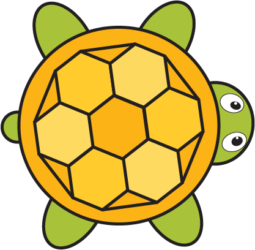
When somebody asks me what I do, I reply that I am a math and science teacher. I have been a teacher for the last nine years, and a tutor even before then. I taught all sorts of subjects and levels, in many different schools and even in two separate provinces (Alberta and Quebec). I feel like I have a lot of experience, and being exposed to the different types of schools (public, charter, private) I can compare the teaching going on in many different environments and I have opinions of what seems to work better for me. I pick and choose what I like and what works best. I learn and apply from one environment to the next. The overall result is that I am becoming a great teacher. In fact, I might be called an expert teacher by my students, peers and superiors.
On the other hand, I feel like I have been going around my teaching profession blind folded. I feel around for clues without really seeing the big picture. In my teacher preparation courses, I felt as if nothing was really explained. The specifics and questions I wanted answered never got answered: What do you to keep the students’ attention? What is the exact way I would go about teaching polynomials? How do you teach a class with a variety of levels without being too challenging for the low end students and yet keeping the high end students engaged? The teaching practice with my partner teachers was the best part of the experience. This apprenticeship led to some great discussions and some more questions that I later had to tackle myself.
After I left university and started teaching my own classes I had to deal with those issues in practice, mostly by trial and error. There was very little help from the outside. Of course I had teacher conferences, weekly teacher meetings, and discussions with other teachers. But all this help seemed very minimal. Mostly I was on my own. I had to reach deep inside to get ideas, figure out the plans, think on the spot of solutions to situations with students, dealing with the content. I would mostly look back at my own days at school and remember back what my teachers did to teach me, and tried to replicate it. After teaching for a while, I became more daring, and attempted more experimental teaching, ones that I read about here and there. Or maybe I tried an experiment or activity that I saw another teacher do. Or I would try to replicate a project idea from a teacher conference.
But where was the unity in it all? Why did I teach like I did? Why did this work, and the previous thing I tried didn’t? What was I trying to accomplish? What was the purpose of it all? The whole picture just wasn’t there.
I knew my students loved me. Thanks to my great rapport with them, thanks to my passion for the subjects, and thanks to my visual and clear explanations, the students enjoyed and learned well the topics I presented. But I knew that something was missing. In some areas I became a master – possibly even an adaptable expert, but the big picture eluded me even so. I felt like an explorer in the deep jungle where there are still no maps. But, in fact there are maps, it’s just that I have not found them yet.
To this end, a few years ago I started to blog, to keep my journey as a teacher on record. One thing I learned from my teacher preparatory courses was that self reflection is an important part of growth and development. I did the self reflection online so that I could possibly share with other teachers, and have others comment on my ideas, my experiences. As great as this experience was, and as much as I have improved my teaching ever since I started blogging, I didn’t feel as if I was still getting everything. I mapped my own learning as a teacher, but I had no outside input (not much anyway). I was still going about the world as an individual trying to find my way. I knew there must be others going through the same dilemmas. I realized that most teachers probably don’t have an answer to any of my questions. They’re probably going around blind folded as much as I have been. But I also realized that some teachers probably don’t even ask those questions in the first place.
At this point I decided to spend some time away from my teaching career and get a few answers from the “experts” – the researchers, the learning scientists. After a couple of months at it (I’m doing a masters of arts in psychology, in the learning sciences stream), I feel like I’m getting a lot of what I needed – but this just means I’m getting more questions along with the the answers. Will I ever be be satisfied and go back teaching full time? We’ll see.
More reading:
Becoming a Critically Reflective Teacher
How To Become a Teacher: Your-Step-By-Step Guide To Becoming a Teacher

